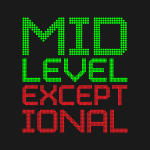KJ McDaniels Rejects the “Hinkie Special”
Over the past few seasons, Philadelphia 76ers General Manager Sam Hinkie has developed (or at least dramatically escalated) the use of a contract that is truly remarkable even with today’s creative front offices.
The contract I call the “Hinkie Special” runs for four seasons with each season fully unguaranteed with no guarantee date. While unguaranteed contracts are becoming more commonplace in the league at various salaries (see: Gordon, Ben) because they add flexibility, having a four-year deal with each season fitting this description stands out.
In fact, regardless of salary, the Hinkie Special is the single most team-friendly contract possible under the current Collective Bargaining Agreement for a player without full Bird rights. They create zero risk for the franchise and function beautifully as a new age pay-as-you-go plan for building a team. While even having one of these contracts would be notable in a league with fifteen roster spots per team, Philadelphia has two Hinkie Special players signed last season in Elliot Williams and Brandon Davies along with Jarvis Varnado, Hollis Thompson and Casper Ware picking up partial guarantees on the first of four seasons (which has already finished now that the league year turned over). If all five make the team that would be one-third of the roster on minimum salary Hinkie Specials. On top of that, per Basketball Insiders the Sixers added Ronald Roberts and Jakaar Sampson on similar contracts with small partial guarantees on the first season this summer.
You may be wondering why players and their agents would sign the most team-friendly contracts reasonably possible under this CBA. The answer appears to be that it was the best offer available. NBA contracts can be hard to come by and players like Elliot Williams and Jarvis Varnado (among others) know first-hand how tough sticking in the league can be. Philadelphia has the additional benefit of being able to give players fighting for a foothold the possibility of playing time, a genuinely rare opportunity for some guys looking to make a mark.
When the Sixers took KJ McDaniels with the second pick of the second round (#32 overall) this June, it marked a test of a few different factors.
First, second round picks have different rules that dramatically open up the process. While second round picks do not have other NBA options (since part of the point of the NBA Draft is exclusive negotiating rights), they do not get scale contracts like first round picks–whose contracts are fully guaranteed for two seasons and then have team options for specified scale amounts the third and fourth seasons. In many ways, second rounders function more like undrafted free agents since they can sign for any length of time (up to the four-year maximum for players without full Bird rights) and for any amount from the first-year minimum ($507,336 this season) to the first-year maximum ($14,746,000 this season). We saw the impact of this freedom earlier this summer when Lance Stephenson became an Unrestricted Free Agent since he signed a four-year deal with the Pacers in 2010.
Second, the Sixers had already agreed to a contract with fellow second round pick Jeremi Grant that was a little outside the norm. Eric Pincus of Basketball Insiders reported that Grant signed a contract with two guaranteed seasons and a first season salary of $885,000 that represents a substantial bump over the aforementioned rookie minimum. In a way, Grant traded about $1.73 million in guaranteed money for two years of team control at the minimum on the back end.
KJ McDaniels and his agent made a different choice by taking the single year non-guaranteed tender. In the short term, that puts McDaniels even with the undrafted Roberts and Sampson in terms of salary and actually behind them in guaranteed money but he gained something potentially huge because of it: access to restricted free agency after just one NBA season. If he makes it through this season in Philadelphia, McDaniels will be a 22 year old free agent in a year when teams all over the league will be flush with cash. McDaniels could very well wash out and hope to get a Hinkie Special with the Sixers or somewhere else but making it through this season knocks the difference between his money and Grant’s to just over $1.2 million while the Sixers would have Grant locked in for the lowest allowable salary for as many as three more seasons.
On a team full of players who sacrificed flexibility and control for the chance at sticking in the NBA, KJ McDaniels bet on himself, potentially creating a new path forward for second round picks as well as a fascinating subplot for 2015 free agency.


